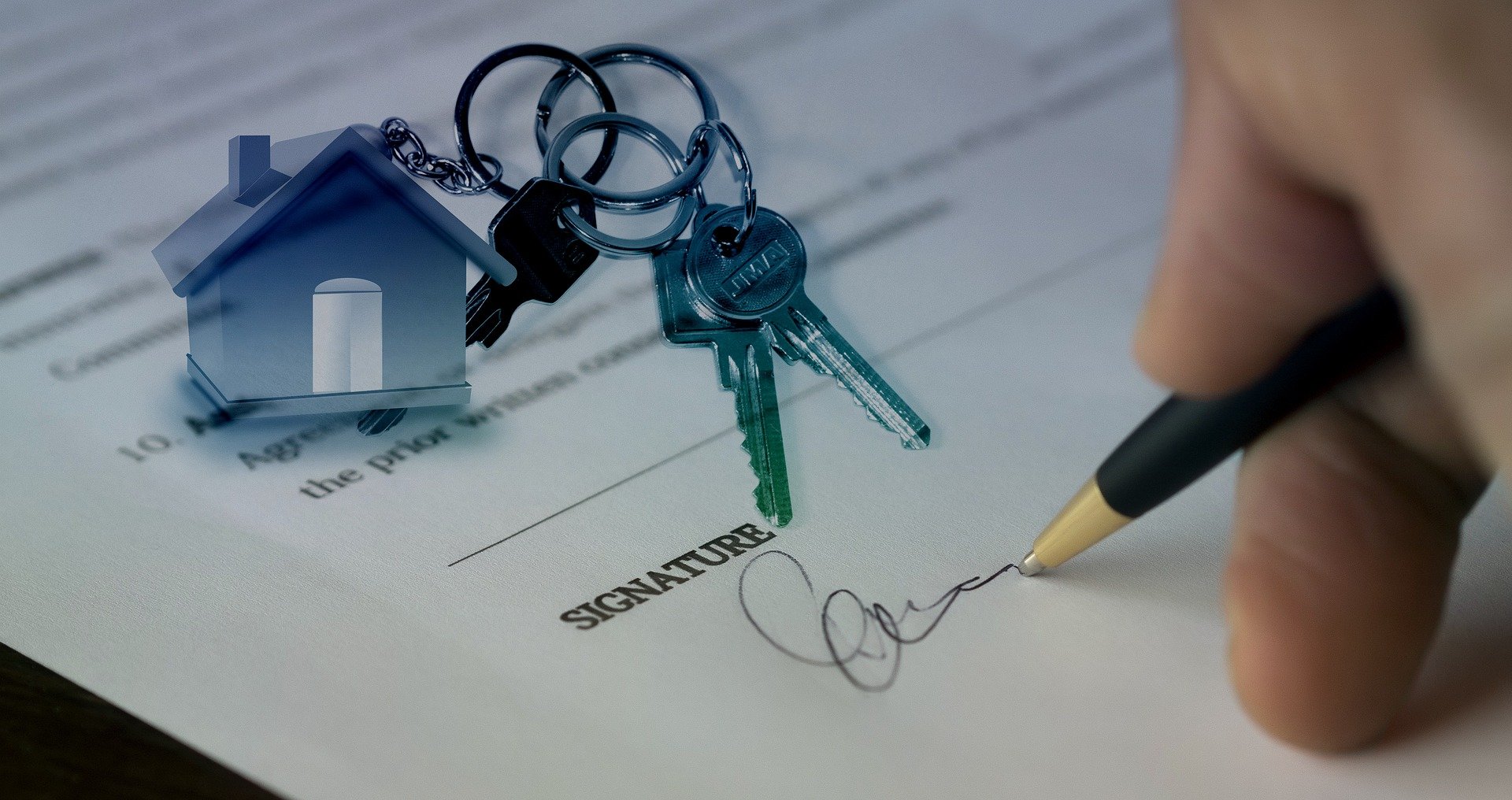
Why your credit score is so important when buying a house
When you’re making the plunge to buy a house, there are many important steps involved. One of the most important steps is applying for a mortgage.
When lenders review your mortgage application, they look at factors such as your employment status, your income, and the size of your down payment. Did you know that lenders will also look at your credit? You may not know it, but your credit can impact your chances of qualifying for a mortgage. Good credit can also help you qualify for lower interest rates, which can help you save hundreds on your regular mortgage payments over time.
Let’s take a look at how important your credit score is when getting a mortgage.
What is your credit score?
Put simply, your credit score is a number between 300 and 900 that summarizes how financially responsible you are. The higher your score, the more attractive you appear to banks, mortgage brokers, and other lenders.

Credit scores in Canada typically fall into five ranges, from poor to excellent:
- Poor: 300-574
- Below Average: 575-659
- Fair: 660-712
- Good: 713-740
- Excellent: 741-900
When shopping around for a mortgage, you should aim to have a fair credit score of 680 or above. The credit score needed for mortgages is not an exact science; some lenders work with borrowers that have credit scores between 600 and 680, but these lenders may charge higher interest rates. To keep it simple, you should make sure your credit score is fair, good, or excellent before applying for a mortgage. You can use a service like Borrowell to check your credit score for free.
How is your credit score calculated?
Your credit score is calculated based on five main factors related to information listed on your credit report. This information is collected by Canada’s two main credit bureaus: Equifax and TransUnion. Each of the five main factors listed below makes up a certain percentage of your overall score. Here’s a breakdown of each factor:

- Payment history (35%): This refers to your history of making payments towards your credit cards, loans, and other accounts on time. Good payment history can help you maintain a strong credit score. Missed payments will appear on your credit report and can hurt your credit score.
- Credit utilization (30%): This refers to how much credit you’re using versus the total credit limit available to you on your credit cards and lines of credit. A low credit utilization rate can help you maintain a good credit score. A high credit utilization rate can hurt your credit score, and it may signal to lenders that you’re stretched thin financially.
- Credit history (15%): This refers to how long you’ve had credit established, including the age of your oldest account and the average age of all your accounts. A long credit history can help you develop a strong credit score over time. Lenders prefer working with clients that have an established credit history with good payment behaviour.
- Credit mix (10%): This refers to the different types of credit accounts you have open, including credit cards, cell phone plans, and car loans. If you have at least two different credit accounts open that you make regular payments towards, you have a solid credit mix that can help you maintain good credit.
- Credit checks (10%): This refers to the formal credit pulls that lenders make when you apply for financial products. Each time you apply, a lender will pull your credit file, and this will be recorded on your credit report. Having too many credit checks listed on your report can temporarily hurt your credit score.
Your credit score is calculated based on data and information listed on your credit report. Your credit report is like a detailed financial report card that shows when you’ve been granted credit in the past. Your report will show what credit accounts you have open (like credit cards and loans), what balances you have on them, and your payment history for each account.
If your credit report is like a report card, your credit score is like your final grade. This score summarizes all the data from your credit report into an easy-to-digest number that showcases whether you’re a responsible borrower.
Why does your credit matter when getting a mortgage?
Your credit score and credit report carry a lot of weight with banks, mortgage brokers, and other lenders.
A good credit score can help you get approved for a mortgage with favourable terms and a low interest rate. This can help you save hundreds of dollars in interest payments over time.
On the other hand, a bad credit score can pigeonhole you into higher mortgage rates from lenders, causing your dream home to cost more in the long-run. Some lenders that work with lower credit borrowers may also charge additional fees for their services. A low credit score can sometimes even prevent you from qualifying for a mortgage entirely, which may force you to put your home-shopping plans on pause.
When your credit score is low, it’s low for a reason. A mortgage represents a lot of borrowed money. Before lenders will approve you for a mortgage, they want to know you’re a responsible borrower. If your credit score and credit report indicate a history of late debt payments late, you pose a higher risk to lenders. As a result, you may only qualify for high mortgage rates with bad credit.
How to improve your credit before getting a mortgage
Now that you know how credit scores work, how they’re calculated, and why they’re important when buying a house, here are some general tips on how to improve your credit score before applying for a mortgage.

1. Make sure you pay your bills on time, every time!
Your payment history is the largest factor that impacts your credit score, so this should be the first area you should focus on. Paying your bills on time consistently is essential to improving your credit and maintaining a good credit score.
You should set bill payment reminders on your phone or digital calendar so that you never miss a bill. You could also use bill tracking tools to alert you about upcoming bills or automate regular payments through your bank account or credit card.
2. Avoid late payments, or arrange payment plans for late bills
Late payments can have a large negative impact on your credit. If you forget to pay a credit card bill, your phone bill, or other bills, your lender or service provider will report your late payment to the credit bureaus, and this will be recorded on your credit report.
Late payments can stay on your credit report for up to six years. The longer you leave a late bill unpaid, the more damage it can do to your credit. If you’re looking to get a mortgage now, make sure you don’t have any late payments plaguing your credit score!
Late payments can hurt your credit score, even if it’s only a small amount. This viral TikTok shows how even a small missed payment can decrease your credit score by 100 points and hurt your chances of qualifying for a mortgage.
If you have an overdue bill, you should contact your lender or service provider as soon as possible to arrange a payment plan. If your bill doesn’t have a minimum payment option (for example, a utility bill), you should call your provider and arrange a payment plan. Arranging payment plans with your service provider can help you attain grace periods and avoid late payments from plaguing your credit report and credit score.
3. Reduce your credit utilization rate by paying off your credit card balances
Credit utilization is the second largest factor that impacts your credit score, so this is another great area to focus on. Paying off your credit card balances can help you reduce your credit utilization, especially if you’re currently carrying large balances on your credit cards. This can be a solid way to increase your credit score in a short period of time.
Before you start applying for a mortgage, make sure your credit card balances are at a low level compared to your credit limits. The golden rule is to keep your total credit utilization rate at or below 30%.
4. Increase the credit limit on your credit cards
Increasing the credit limit on your credit cards can reduce your credit utilization rate, which can help you increase your credit score. If managed responsibly, accepting an offer from your credit card provider to increase your credit limit can help you improve your credit score. The key is that you must maintain the same balance on your card while increasing your limit.
For example, if you increase your credit card limit from $3,000 to $4,000 while keeping your credit card balance at $1,000, then your credit utilization will decrease from 33% to 25%. It can be very tempting to splurge when you increase your credit limit, so remember to stay disciplined in order to reduce your credit utilization rate.
Review your credit before applying for a mortgage
Ready to buy a home? Make sure you know what your credit looks like first! You should regularly review your credit report to see what lenders and mortgage brokers might see when you apply for a mortgage. Downloading your credit report can help you understand what your credit accounts look like and see what negative information could be bringing your credit score down. With services like Borrowell, you can download your credit report for free.
Borrowell is dedicated to making financial stability possible for everyone. With over 2 million members, the company offers free credit scores in Canada, education, weekly credit monitoring, credit building solutions, as well as digital tools like AI-powered credit coaching and personalized financial product recommendations. For more information, visit Borrowell’s website or download the mobile app for Android or iOS.

Read More
Connect With Us
Connect with our friendly Client Ambassadors and find the best Agent to match your needs
Call us at 1-647-794-0064
Join Our Team |Become a Partner


